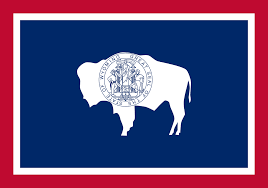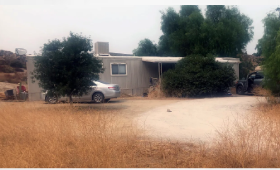Well worth a read…
Irrational Wyoming
At a time when the rest of the nation is moving to loosen the grip on cannabis, Wyoming is bucking the trend — and not in a good way. State lawmakers are pushing to tighten the reins on cannabis, pushing for laws that will further penalize, not decriminalize, cannabis use.
It’s a puzzling move by state lawmakers, given the overall climate regarding cannabis in Wyoming. Marijuana is the third most popular recreational drug in America (behind only alcohol and tobacco), and has been used by nearly 100 million Americans. According to government surveys, some 25 million Americans have smoked marijuana in the past year. More than 14 million do so regularly despite laws against its use, according to NORML.
It seems a bit counterproductive to continually lobby to further outlaw cannabis, given that Wyoming has some of the strictest cannabis laws in the nation.
In Wyoming, possession of under three ounces of cannabis is a misdemeanor that can be punished with up to a year in jail and a $1000 fine; possession of over three ounces is a felony.
Marijuana intoxication is also a crime — a misdemeanor — and is punishable by up to six months in jail and a $750 fine. Get caught cultivating any amount of marijuana, and you’re facing a misdemeanor that can earn you 6 months in prison and a fine of up to $1,000.
The felony charges are much harsher. A person in possession of more than 3 ounces of marijuana faces a potential 5-year prison sentence and a $10,000 fine. Those same penalties apply to the sale or distribution of any amount of marijuana.
The harshest penalties for marijuana involve children. An adult who distributes marijuana to a minor faces up to 20 years imprisonment and a $10,000 fine. A marijuana conviction within 500 feet of a school is subject to an additional $500 fine.
Wyoming does allow in very limited capacities the use of medical CBD oil — or in layman’s terms, a non-psychoactive oil derived from cannabis — but the law is extremely limited and provides no legal means of in-state access.
The law only recognizes certain seizure disorders to be treated by CBD oil — inexplicably categorized as “hemp extract” — that cannot contain more than 0.3 percent of THC. To qualify, they must have a written recommendation from a certified neurologist who has tried other treatment options that have proven ineffective. Minors can use CBD oil, but the law holds their parents or guardians responsible for that use.
Only 2.5 percent of registered patients in Colorado and less than 1 percent of patients in Arizona list seizures as their qualifying condition, making a law like this effectively useless for the majority of Wyoming medical patients.
Should a medical patient qualify under Wyoming law, chances are good they’ll need higher levels of THC than currently allowed anyway. CBD therapy is with many seizure sufferers more effective when there’s a higher THC to CBD ratio, but Wyoming law won’t allow it.
But, should there be a Wyoming resident who may benefit from CBD-only oil, the law doesn’t provide for legal route to obtain it. The law prohibits patients from growing their own marijuana or producing oil for their personal use and does not allow a way for patients to procure hemp extracts.
Instead, medical patients are forced to procure their medicine from other legal states or risk purchasing CBD oil from online sources — a legal, but mostly unregulated route of obtaining the oil.
Given the relative uselessness of Wyoming’s CBD oil law, efforts have been made recently to expand the program, but to no avail.
Last year, three bills were proposed that would have expanded the program. The first, HB 265, was sponsored by Rep. Dan Zwonitzer (R-Laramie) and would have allowed doctors to recommend low-THC medical cannabis — which is illegal under current state law — but the bill did not set up dispensaries.
The second — HB 81 — would have expanded the existing CBD bill to include dependent adults and any medical conditions, which would have given more medical patients with conditions outside of seizures legal protections under the law.
The third — HB 247 — would have allowed out-of-state patients to legally possess their medicine in Wyoming, which is illegal under current law. Not one of the bills advanced before their deadline, leaving Wyoming’s extremely-limited medical cannabis program to stagnate.
There has been some push toward legalization by Wyoming residents and advocates in spite of lawmakers’ prohibitive stances, although none have been terribly successful. Late last year, Wyoming NORML pushed for a legalization initiative that would have appeared on the 2018 ballot, but the petition lacked enough signatures to become a ballot measure for the 2018 mid-term elections.
Numerous marijuana policy reform bills were introduced during the Wyoming Legislature’s 2017 session, which ended on March 3. A decriminalization bill sponsored by Rep. Mark Baker (R-Sweetwater) failed a committee vote despite bipartisan support, and an effort he led with Rep. James Byrd (D-Laramie) to amend the constitution to legalize marijuana was not considered.
In 2016, an initiative that would have legalized marijuana in Wyoming for recreational purposes was attempted but did not garner enough signatures to make it on to the November 2016 ballot. Another bill that would have decriminalized marijuana possession (again sponsored by State Representative James Byrd of Cheyenne) failed for the third year in a row.
Wyo lawmakers’ refusal to compromise on cannabis makes little sense, given the overall support for sensible cannabis laws, medical or otherwise, by Wyoming residents. A poll taken in late 2016 showed that 81 percent of Wyoming residents supported medical marijuana, and 72 percent opposed jail time for possession of small amounts. Those numbers are well above the majority.
The hard-nosed anti-cannabis stance in Wyoming isn’t just puzzling, though. It’s also incredibly costly. While the exact cost of fighting cannabis in Wyoming isn’t clear, we do know that enforcing marijuana prohibition nationwide costs taxpayers an estimated $10 billion annually and results in the arrest of more than 600,000 individuals per year.
That number is far more than the total number of arrestees for all violent crimes combined, including murder, rape, robbery and aggravated assault, according to NORML.
Full Article At: http://planetjh.com/2018/02/07/fear-the-reefer-as-the-nations-cannabis-laws-become-more-rational-wyoming-is-bucking-the-trend/


















